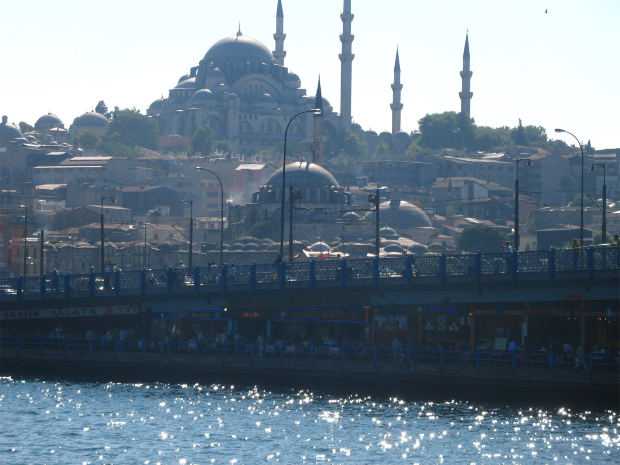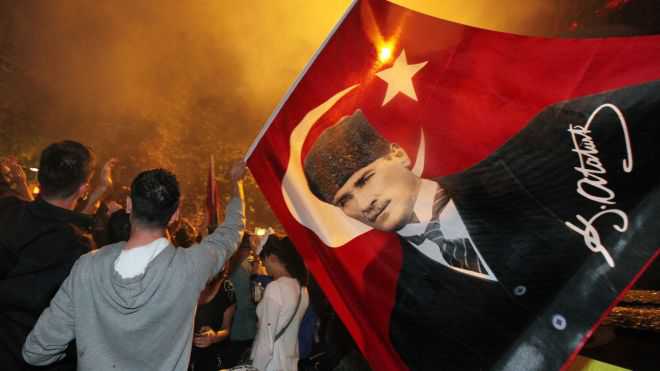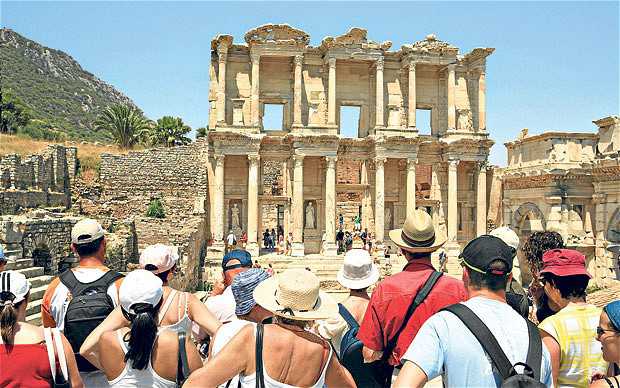James Franklin Jeffrey
James Franklin Jeffrey is an American diplomat and the current US ambassador to Turkey. He was serving as the Deputy National Security Advisor before being appointed to Turkey. He joined the Foreign Service in 1977. His most recent assignments were as Deputy Chief of Mission to Ankara, 1999-2002, and to Kuwait, 1996-1999. He also has served in Tunis, Sofia, Munich, Adana, and on a first assignment to Ankara in 1985-1987. In the Department, Mr. Jeffrey has served as Senior Greek Desk Officer, as Officer in Charge of the Conference on Security and Cooperation in Europe, as Deputy Office Director in the Office of Near Eastern Peace Process and Regional Affairs, and as Deputy Presidential Special Advisor for Bosnia Implementation. He speaks German, French, and Turkish.
Mr. Jeffrey received a BA in History from Northeastern University in 1969, and an MS in Business Administration from Boston University Graduate School of Management in 1977. He also holds a diploma in the French language from the University of Paris. From 1969-1976 Mr. Jeffrey served as an infantry officer in the U.S. Army, with assignments in Germany and Vietnam. He was born in Massachusetts, and his current state of residence is Virginia.
Ambassador Jeffrey has held a variety of assignments related to Europe and the Middle East during his 30-year career with the U.S. Department of State. His past assignments have included Principal Deputy Assistant Secretary of State for the Near East, Senior Advisor to the Secretary of State for Iraq, U.S. Deputy Chief of Mission and U.S. Chargé d’Affaires in Iraq, U.S. Ambassador to Albania, U.S. Deputy Chief of Mission in Turkey and Kuwait, U.S. Deputy Special Representative for Bosnia Implementation, Senior Greek Desk Officer, Officer in Charge of the Conference on Security and Cooperation in Europe, and as Deputy Office Director in the Office of Near Eastern Peace Process and Regional Affairs. Earlier overseas assignments included postings at the U.S. Consulate General in Munich, Germany; U.S. Embassies in Turkey, Bulgaria, and Tunisia; and the U.S. Consulate in Adana, Turkey.
————————————————————-
Biography of Ambassador James F. Jeffrey, Assistant to the President
and Deputy National Security Advisor
On August 1, 2007, President George W. Bush named Ambassador James F. Jeffrey as Assistant to the President and Deputy National Security Advisor. James Jeffrey is a career member of the Foreign Service, grade of Career Minister.
Ambassador Jeffrey has held a variety of assignments related to Europe and the Middle East during his 30-year career with the U.S. Department of State. His past assignments have included Principal Deputy Assistant Secretary of State for the Near East, Senior Advisor to the Secretary of State for Iraq, U.S. Deputy Chief of Mission and U.S. Chargé d’Affaires in Iraq, U.S. Ambassador to Albania, U.S. Deputy Chief of Mission in Turkey and Kuwait, and U.S. Deputy Special Representative for Bosnia Implementation. Earlier overseas assignments included postings at the U.S. Consulate General in Munich, Germany; U.S. Embassies in Turkey, Bulgaria, and Tunisia; and the U.S. Consulate in Adana, Turkey.
Ambassador Jeffrey served as an infantry officer in the U.S. Army from 1969 to 1976, with assignments to Germany and Vietnam. He holds a Bachelor of Arts degree from Northeastern University and a Master of Science in Business Administration from Boston University.






